This audiophile community calls BS on Abyss’ marketing tactics.
Abyss is in the middle of a controversy for stating that they’ve made the “world’s highest-resolution headphones” in an ad. This claim became a subject of scrutiny as audiophiles questioned the scientific basis and validity of such a statement.
The Issue with “Highest-Resolution Headphones”
The main concern over Abyss’ claim that their headphones have the “highest resolution” is the fact that it’s virtually impossible to quantify.
High-resolution audio refers to sound recording and reproduction that surpasses the quality of the standard CD format.
The Consumer Technology Association (CTA) and various music labels describe high-resolution audio as “lossless audio capable of reproducing the full range of sounds from recordings mastered from better than CD quality music sources.”
Technically, it involves a higher sampling rate and bit depth compared to standard CD-quality audio. While CDs typically have a quality of 44.1 kHz/16 bit, high-resolution audio starts at 48 kHz/20 bit, extending to 96 kHz or even 192 kHz. This higher quality theoretically provides a more detailed and less compressed sound.
However, the perceptual difference in sound quality can vary significantly among listeners.
Some audiophiles report a richer and more nuanced sound with high-resolution audio. Others, question the perceptual benefit, especially on standard playback systems.
The equipment used to play back high-resolution audio is also a crucial factor. The full potential of high-resolution audio can only be realized with high-quality headphones, audio sources, and amplification. Without a system capable of handling high-resolution standards, the improvements in sound quality may not be fully appreciated.
Additionally, the experience of high-resolution audio is subjective. Individual hearing abilities, recording quality, and personal preferences significantly influence audio perception.
Although high-resolution audio suggests superior sound quality, user experiences and its value vary. These differences depend on factors beyond technical specifications.
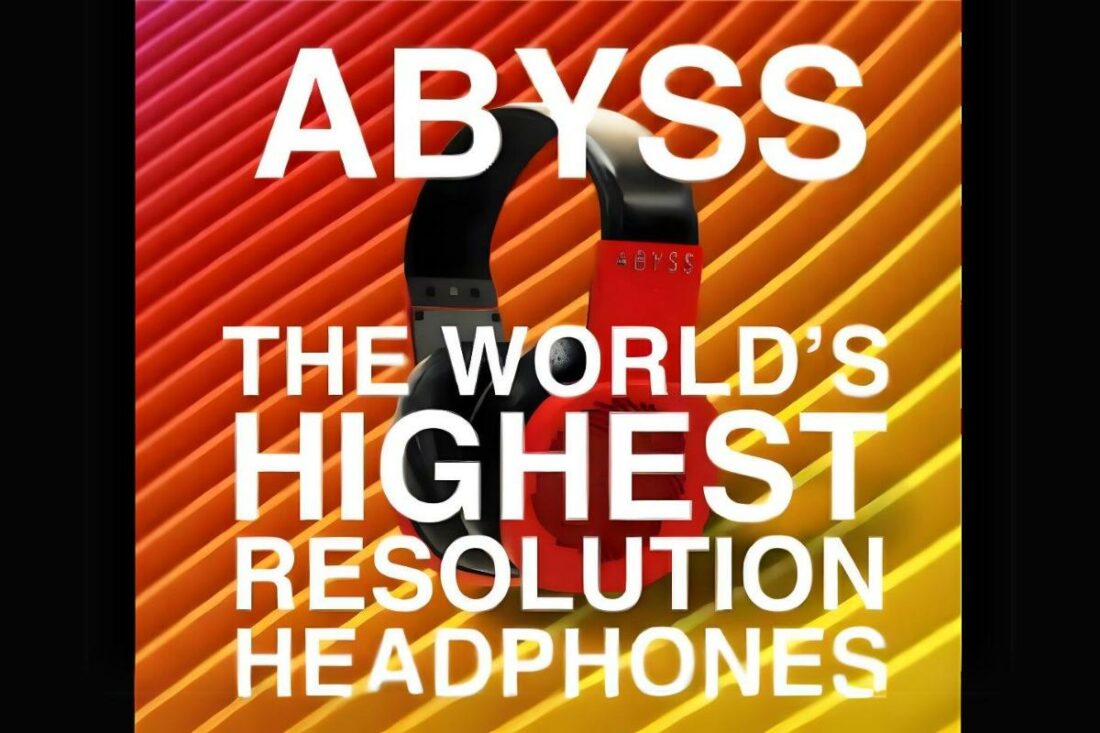
This subjectivity, coupled with the lack of universally accepted standards for high-resolution audio, means that claims like “the world’s highest-resolution headphones” are often viewed skeptically. Such claims are often regarded as marketing tactics rather than factual, measurable assertions.
Redditors Slam Abyss’ ‘Highest-Resolution Headphones’ Claim
Audiophiles are not having it, as highlighted in a Reddit post on the r/headphones subreddit.
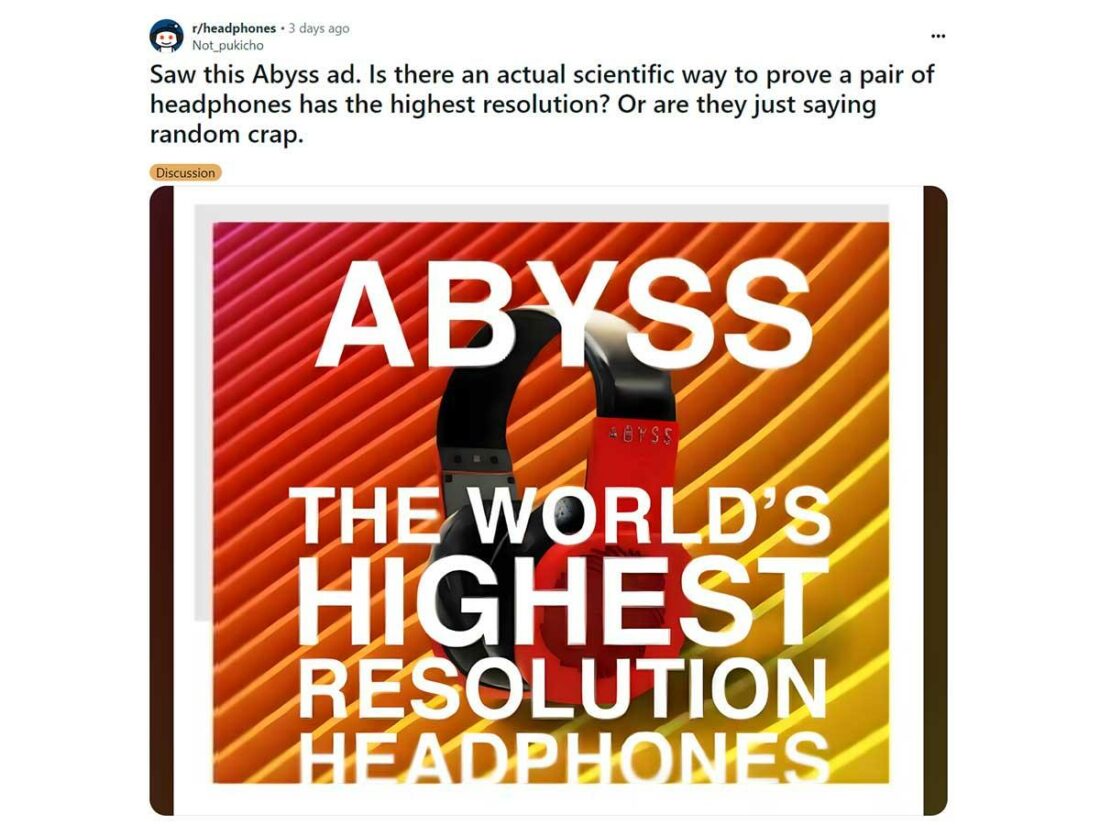
Many comments agree with the first post, adding that Abyss is guilty of making bogus statements.
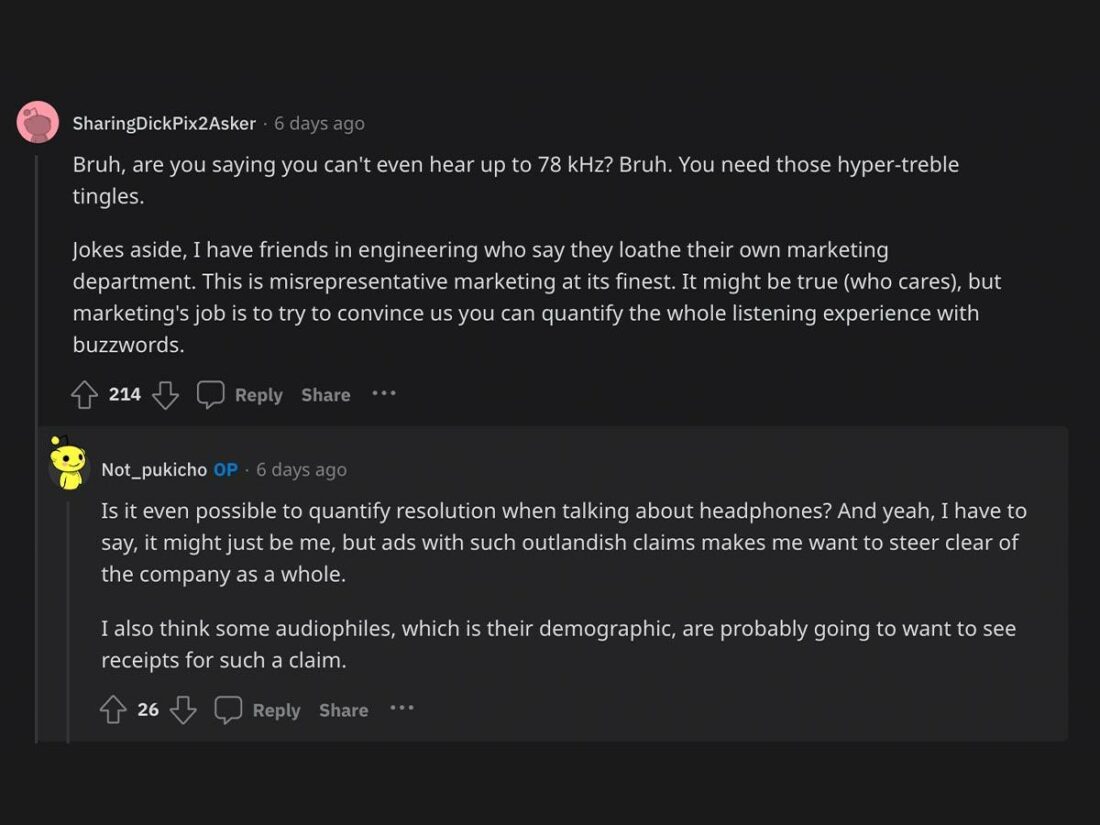
“Is it even possible to quantify resolution when talking about headphones? And yeah, I have to say, it might just be me, but ads with such outlandish claims makes me want to steer clear of the company as a whole.
I also think some audiophiles, which is their demographic, are probably going to want to see receipts for such a claim.” @Not_pukicho further says in one of their responses.
User hurtyewh also bluntly stated that “Abyss talks plenty of BS in their marketing.” Another user, ThatRedDot, emphasized supporting data and comparison analytics.
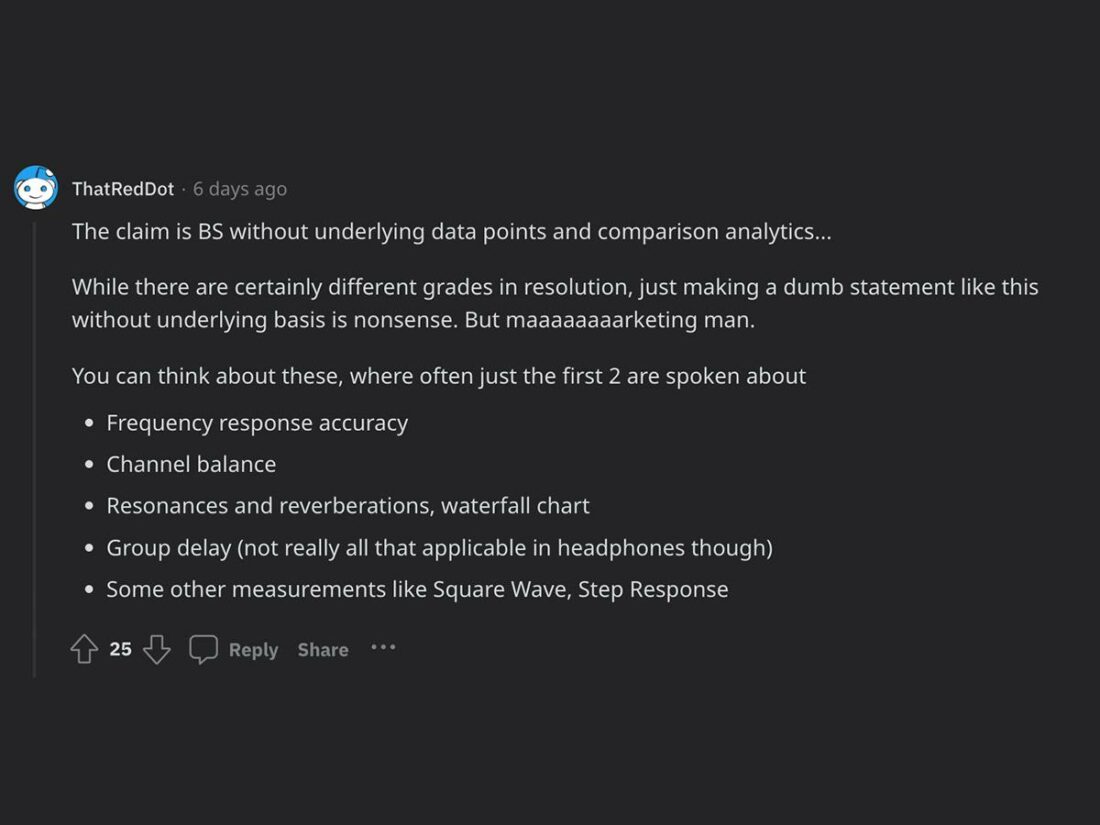
Another Redditor, Excellent-East-8672, added that Abyss headphones weren’t exceptional. He said he wouldn’t call them detailed headphones. This is because they had tonality errors and masking resonance peaks.
In Abyss’s defense, user Destruckhu acknowledges that Abyss makes good headphones. But, they’re still urging Abyss for a more subdued approach to marketing.
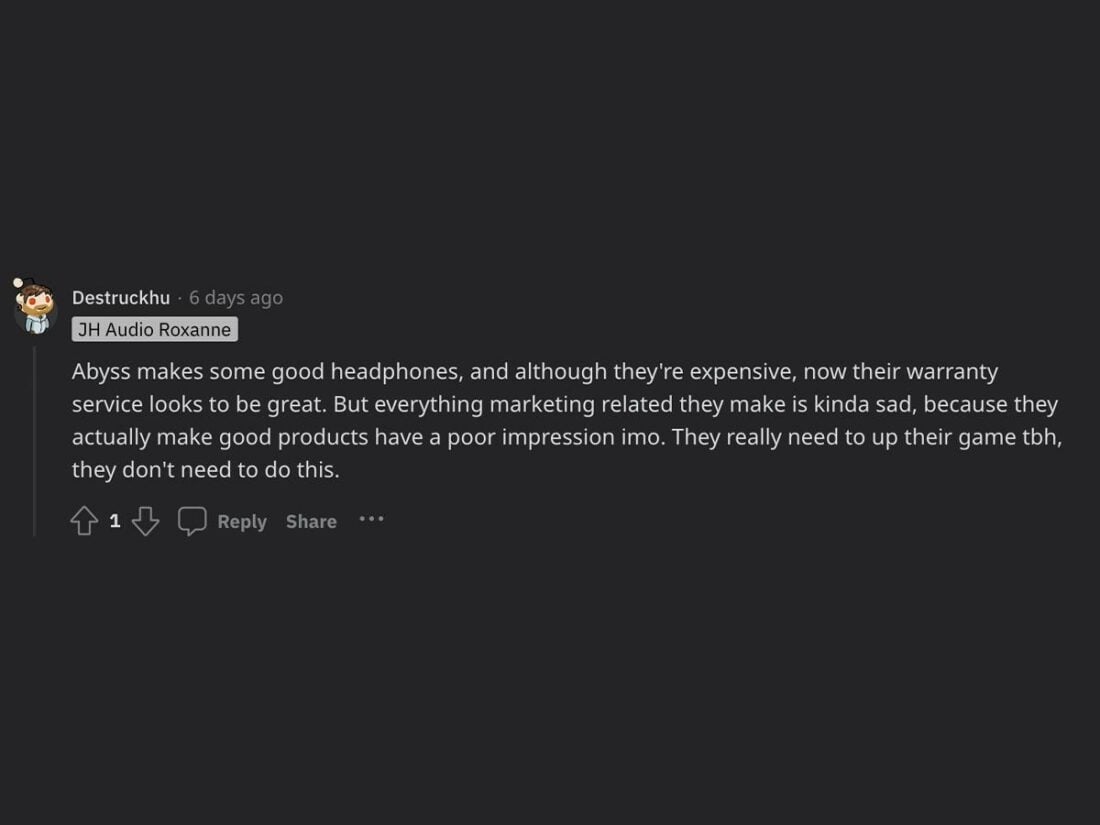
False Promises, Real Consequences: The Dangers of Misinformation in Ads

When companies promise a lot but fail to follow through, it hurts the brand’s credibility. This also cultivates customer distrust and can lead to expensive legal trouble.
The recent Abyss controversy underscores the risks of misinformation in advertising.
Consider the example of 5-hour Energy. They stated in an ad poster that their shots were better than coffee, and they had support from doctors. This misleading claim resulted in a $4.3 million penalty in 2019 after revealing the brand’s deceptive tactics.
Sensa, a weight-loss product, advertised that its additive enhanced food smell and taste, reducing appetite. The FTC found these claims misleading, leading to a $26.5 million settlement and charges for not revealing paid endorsements.
These instances highlight the need for transparency and accountability in advertising. As consumers become more discerning, businesses must recognize that false promises not only have immediate consequences. It also poses long-term risks to their reputation in the eyes of the public.
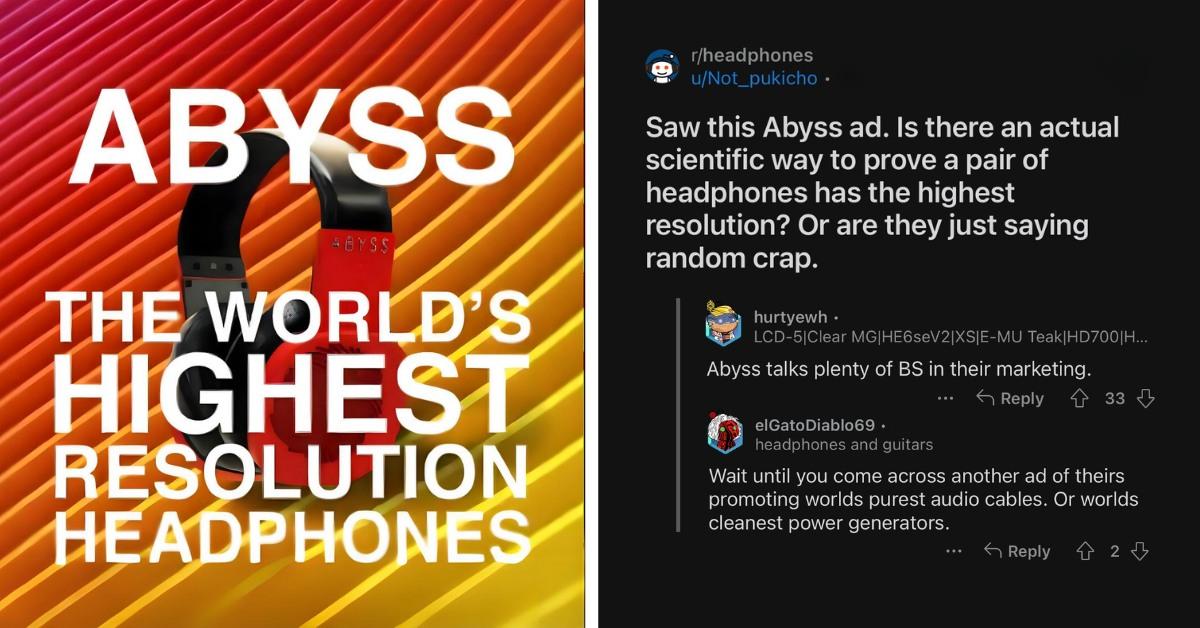
It’s called “puffery” and, in the US, it’s legal
Caveat Emptor, sports fans – don’t believe anything you hear or read and only half of what you see